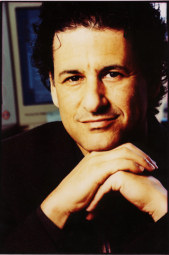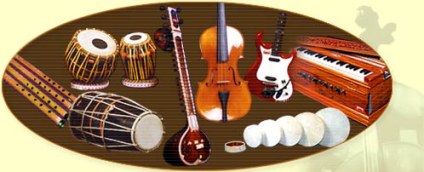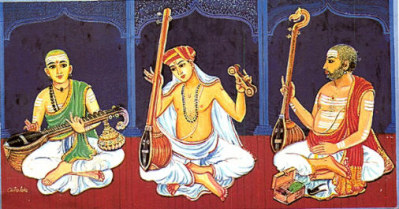Music and Drug Free Living
Singing is really good for your health. It really oxygenates your blood. You stretch your lungs and take in much more air into them than before.
Medicine to produce health must examine disease; and music to create harmony must investigate discord.
Research on music
Music as medicine has huge potential - Dr.Daniel Levitin, Professor of Psychology and Music at McGill University, Montreal, Canada.
Music boosts the body's immune system and is more effective than prescription drugs in reducing anxiety before a surgery, a research review from two psychologists at Montreal’s McGill University suggests.
"I think the promise of music as medicine is that it's natural and it's cheap and it doesn't have the unwanted side effects that many pharmaceutical products do," said Dr.Daniel Levitin, who co-authored the review recently published in the journal, Trends in Cognitive Science.

Dr.Daniel Levitin
Levitin's page for researchers
Levitin and post-doctoral researcher Mona Lisa Chanda reviewed 400 published scientific papers, trying to find patterns among the results.
They found that music had documented effects on brain chemistry and associated mental and physical health benefits in the below four areas:
- Management of mood
- Stress reduction
- Boosting immunity
- As an aid to social bonding
* Results showed that music increases an antibody, immunoglobulin that plays an important role in immunity of the mucous system.
* And music increases natural killer cell counts, the cells that attack germs and bacteria invading the body.
* The review found 15 studies showing that people's levels of a stress hormone called cortisol dropped after they listened to relaxing music, indicating a reduction in stress.
* One paper even compared patients at a hospital before surgery who were randomly assigned to either listen to music or take an anti-anxiety drug such as Valium. "People who received the music had lower anxiety levels than people who had the drugs and without side effects," Levitin said.
* Studies showed that slower music tends to be more relaxing than faster music, but familiar music is more relaxing, regardless of the type and tempo.
- The study was funded by the Natural Sciences and Engineering Research Council (NSERC) and the Social Sciences and Humanities Research Council (SSHRC) of Canada.
“What exercise is to the body, music is to the brain” - various other studies on music proved this point. Music is shown to have the ability to help organize the brain, especially vital to those who are afflicted with Alzheimer’s.

Few musical instruments
Music therapy
Music has been used as a healing force for centuries. In 13th century, Arab hospitals contained music rooms for the benefit of the patients.
In the United States, Native American medicine men often employed chants and dances as a method of healing patients.
“Music therapy is an established healthcare profession that uses music to address physical, emotional, cognitive, and social needs of individuals of all ages. Music therapy improves the quality of life, meets the needs of children and adults with disabilities or illnesses. Music therapy interventions can be designed to: promote wellness, manage stress, alleviate pain, express feelings, enhance memory, improve communication and promote physical rehabilitation. Research in music therapy supports its effectiveness in a wide variety of healthcare and educational settings”. - American Music Therapy Association
“The human body is the living resonance of the sound” said Hazrat Inayat Khan, a Sufi musician belonging to the early 1920’s. He felt that sound has an effect on each cell of the body, on all glands, on circulation of blood and pulsation. It is interesting that in recent times, a number of therapists have come to endorse this particular observation of Hazrat Inayat Khan.
Music is basically sound, which is harmonious, melodious and soothing in nature and which is abundantly evident in myriad forms around us. Music also has the potential to create euphoria, a state of ecstasy, extreme distress and outright pain. As such music, depending on the nature of its delivery and the environment in which it is delivered, connects and communicates with us in different individual ways.
Usually after twenty minutes of music, there are observable effects, such as singing, foot tapping, and clapping. Studies have shown that the results of a music therapy session last for several hours afterward. Positive results include elevated mood, increased socialization, better appetite and reduction in agitation.
Clinical studies and anecdotal evidence from music therapists working individually and as part of a multi-disciplinary professional teams suggest that music is an effective therapeutic intervention in the following areas:
- Autism & Related Neurological Disabilities
- Trauma & Pain Management
- Stress Reduction
- Depression
- Behavioural Correction
- Sleep Disorders
- Relaxation
- Hospice care (palliative care of terminally ill patients)
- Senior citizens
- Lowering blood pressure
- Boosting immune system
- Focusing mind
Music therapy is also used in some medical hospitals, cancer centres, schools, alcohol and drug recovery programs, psychiatric hospitals and correctional facilities.
Music for soul
It's always better to hear a music which is melodious, soothing and soul-stirring. Blaring and jingbang stuffs don't do much in elevating one's consciousness to a next higher level.
Music has been with man since the very beginning of his existence and through time it has changed and evolved. Different nations and people have developed their own forms of music.
India, which is one of the oldest civilizations in the world has a rich and diverse tradition of music, both classical and folk. Indian classical music has evolved over hundreds of years and is today a highly refined form of music. It has gained international recognition and has followers from all parts of the world.
Classical music indeed brings peace and harmony to the soul. Musical renditions have the power to lift man from depression to ecstasy, especially when sung with a devotional note.
There are mainly two forms of classical music in India viz., Carnatic and Hindustani. Carnatic music (Karnataka Sangeetham) is to south India what Hindustani music is to north India.
There are many composers in Carnatic music. Purandhara Dhasa (1484–1564) is renowned as the Grandfather of Carnatic music for formulating the basic lessons and his contributions to Carnatic music. And the contemporaries Thyagaraja (1767– 1847), Muthuswamy Dheekshidhar (1775–1835) and Shyama Shasthri (1762–1827) are regarded as the Trinity of Carnatic music because of the quantum of their work.

Muthuswamy Dheekshidhar, Saint Thyagaraja and Shyama Shasthri
From Music and Drug Free Living to Drug Free Living Home
Like This Page?
